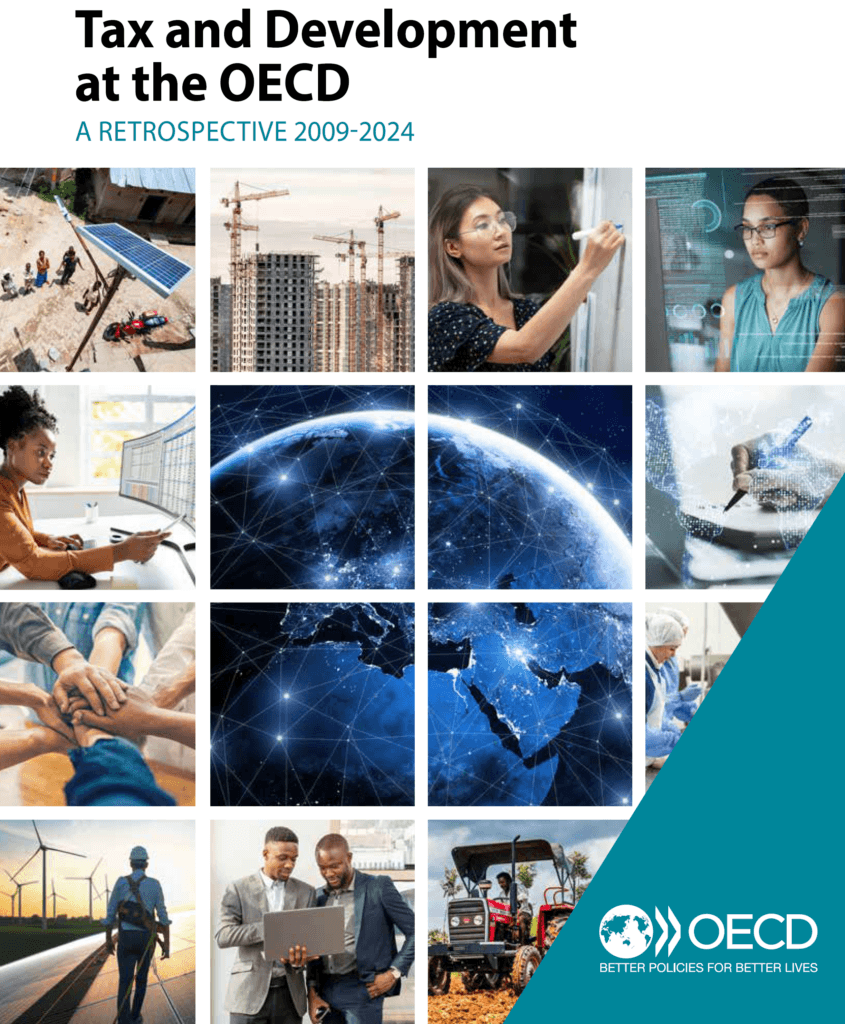28 May 2024

課税の重要性が、国際開発やOECDの議論の中心となった15年間の変遷を振り返るレポートです。
2008年の金融危機以前、途上国の課税ニーズは国際的な議論でほとんど注目されていませんでした。しかし、危機後、OECDは課税を通じた開発支援を重視するようになり、途上国との協力が拡大しました。その最初の大きな進展は、2009年の「税務透明性と情報交換に関するグローバル・フォーラム」の再編でした。これにより、金融口座情報の自動交換(AEOI)などの基準が策定され、税務分野での国際協力が急速に進展しました。
2024年2月現在、グローバル・フォーラムの加盟国・地域は171に拡大し、その半数以上が途上国です。これまでに途上国による追加の税収として410億ユーロ以上が確認され、OECDの技術支援がその重要な役割を果たしました。また、国際課税の課題への対応として2015年にBEPS(課税ベース侵食と利益移転)行動計画が採択され、2021年にはグローバル・ミニマム税率の導入などの合意も実現しました。
さらに、OECDは持続可能な開発目標(SDGs)を支える税制改革にも力を入れ、各国が税務データの透明性を高め、政策立案や税務管理を効率化できるよう支援を続けています。こうした取り組みには、国連や世界銀行など、さまざまな国際機関とのパートナーシップが不可欠であり、それにより開発目標への貢献が拡大しています。
レポートは、OECDが国際課税分野で果たしてきた役割と、課税を通じた開発への支援がもたらした成果を包括的に示しています。
原文
Abstract
This report looks back at 15 years of tax and development work at the OECD charting the evolution of the OECD’s engagement with, and inclusion of, developing countries in its tax work from 2009 to 2024. Beginning with the restructuring of the Global Forum on Transparency and Exchange of Information for Tax Purposes in 2009, through the BEPS Actions, the establishment of the Inclusive Framework on BEPS and negotiations on the Two Pillar Solution to Address the Tax Challenges of the Digitalising Economy, it shows how OECD initiatives have combined the momentum for multilateral tax co-operation with the increased focus on taxation in international development, to develop a range of tools, instruments and forums with wide participation from developing counties. Accompanying the move to multilateralism in tax matters, the OECD has also sought to increase the availability of data on taxation, for example through the Global Revenue Statistics Database, and support more integrated tax and development policy thinking, for example on the taxation of development assistance. Concurrently there has been a continuous growth in the OECD capacity building activities, now reaching over 30,000 officials in over 100 countries annually. Notable among these initiatives is the groundbreaking joint OECD/UNDP Tax Inspectors Without Borders initiative. The report features several case studies highlighting the impacts across various countries, as well as the wide range of partnerships forged by the OECD to harness taxation’s potential in advancing sustainable development.

